Waste-Plastic – Sorting-system 09-05-2022 - Arhive
Waste-Plastic – Sorting-system
-Versalis to launch new food pack made with 75% post-consumer polystyrene
Versalis, Eni’s chemical company, is expanding its Revive portfolio to include a new product for food packaging made with 75% domestic post-consumer polystyrene, said Packagingeurope. Waste-Plastic – Sorting-system
The product, referred to as Versalis Revive PS Air F – Series Forever, is the result of the company’s existing collaboration with Forever Plast S.p.A., and has been developed as part of a collaborative project with various players in the polystyrene industry value chain, including Corepla, ProFood and Unionplast.
This collaboration has given rise to a tray that is suitable for food and is composed of recycled polystyrene developed by the companies that are members of Pro Food. According to the company, the solution is also recyclable. The tray consists of an inner layer containing Versalis Revive PS Air F – Series Forever and two outer layers made from virgin polystyrene. This structure, known as the A-B-A functional barrier, ensures food contact compliance.
The functional barrier design and stringent testing were developed in collaboration with the Fraunhofer Institute for Process Engineering and Packaging (IVV), a Germany-based applied research institute that works with industry to develop viable technologies for bringing innovative products to the market.
This new solution is scheduled to be marketed over the next few weeks and is mainly aimed at the meat and fish packaging market.
The Versalis Revive range comprises products made exclusively from mechanical recycling of post-consumer plastics and plastics from the industry supply chain. In addition to Versalis Revive PS, other polymer-based products are available on the market, including expandable polystyrene (Versalis Revive EPS) and polyethylene (Versalis Revive PE).
As per MRC, Versalis confirms the transformation of its activities at Porto Marghera and the implementation of new industrial initiatives in the area. These initiatives complement Eni’s plans in the petrochemical and biorefinery field for a total of more than EUR500 million in investments, and aim to accelerate the energy transition and the development of chemistry from the circular economy. This implementation will see more than 600,000 tonnes/year of CO2 emissions being cut.
As per MRC, Versalis S.p.A. (San Donato Milanese), the chemical company of Italian energy major Eni, has licensed to Enter Engineering Pte. Ltd. a Low-Density Polyethylene/Ethyl Vinyl Acetate (LDPE/EVA) swing unit to be built as part of a new Gas-to-Chemical Complex based on MTO-Methanol to Olefins technology to be located in the Karakul area in the Bukhara region of the Republic of Uzbekistan.
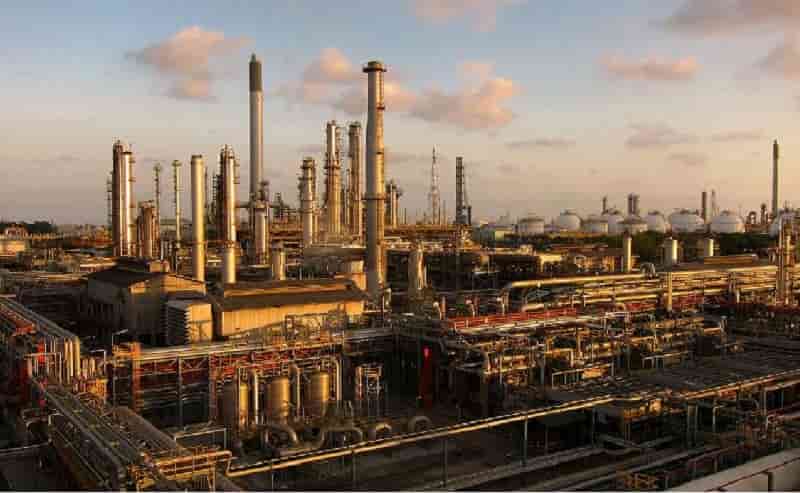
-Assessing odour-reduction technology in textiles
Researchers at Microban International have developed a novel strategy for evaluating the success of odour control technologies.
The growth of the global sportswear market is fuelling interest in odour control technologies for textiles. Waste-Plastic – Sorting-system
Among the emerging methodologies that assess odour reduction functionality is a novel procedure that uses a synthetic formulation closely mimicking human sweat and incorporates human perception for assessment. Kate Hawley, Senior Microbiologist, and Dr Glenner Richards, Director of Microbiology and Analytical Chemistry, both from Microban International, explain their newly developed system for testing the efficacy of odour-reduction treatments in sports clothing.
Textile malodour is a major concern in the sports and athleisure wear markets. While wearing any textile article – especially during any physical exertion – body sweat is transferred to clothing.
Being organic in nature, sweat is readily metabolized as a food source by skin microflora, generating chemical substances that are associated with body odour. Chemical components within sweat are hydrophobic and effortlessly bind to the synthetic fibres typically used in sports apparel, so they are not easily dislodged during washing. This adherence leads to long-term malodour retention within the fabric, causing consumers to excessively wash their clothes, so the textile articles wear out faster and end up being prematurely discarded.
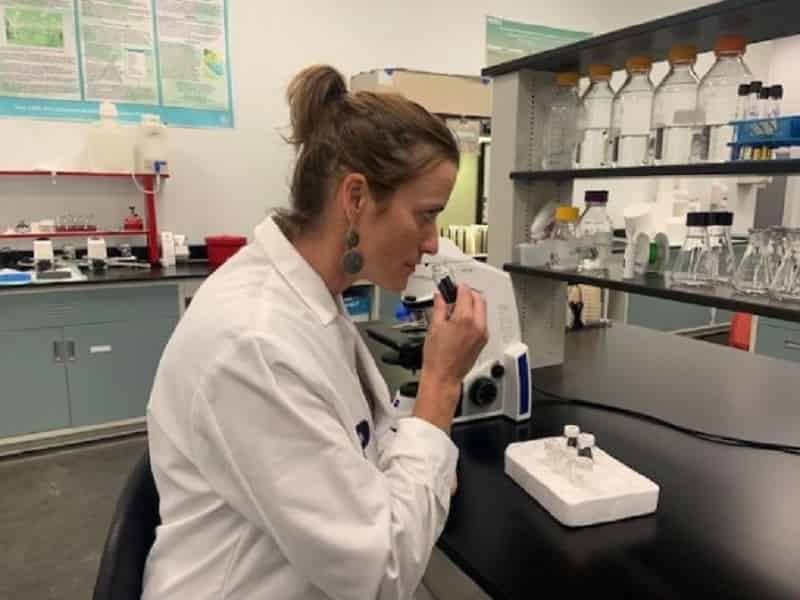
-Amcor’s PowerPost Technology Lightweights PET Bottles, Improves Consumer Experience
The technology produces bottles nearly one-third lighter with a 30% energy reduction and 30% carbon savings over most 20-oz bottles.
Just ahead of National Packaging Design Day on May 7, Amcor Rigid Packaging (ARP) has announced the launch of PowerPost, a technology that produces bottles nearly one-third lighter with a 30% energy reduction and 30% carbon savings over most 20-oz bottles available today. It also allows for the use of up to 100% recycled materials and reportedly provides a superior consumer experience by eliminating spills from overflow when the bottle is first opened. Waste-Plastic – Sorting-system
ARP claims that PowerPost is the most advanced lightweighting technology for hot fill beverages on the market today. It is described as an extension of Amcor’s patented, vacuum-absorbing technology, PowerStrap. The PowerPost base incorporates two key technologies — an invertible, central post that actively displaces vacuum and PowerStrap, the flexible ring surrounding the post. After filling, the post is inverted to actively displace vacuum inside the container. As the product cools down, the surrounding ring flexes to passively absorb any remaining vacuum.
By eliminating vacuum panels, PowerPost offers increased design freedom, a premium appearance, and consumer appeal, while addressing sustainability goals, said ARP in the announcement. Eliminating the panels in the body also drives operational improvements at the fillers. Bottle labels are applied more efficiently, said the company.
“Our engineers developed technology that pushes the boundaries of lightweighting in the hot-fill arena to help our customers meet their cost and sustainability needs,” said Terry Patcheak, Vice President of R&D, Sustainability and Project Management at ARP. “This next-generation innovation will improve the consumer experience while addressing widespread commitments to reduce material use and lower greenhouse-gas emissions.”
Amcor has pledged to make all of its packaging recyclable, compostable, or reusable by 2025.
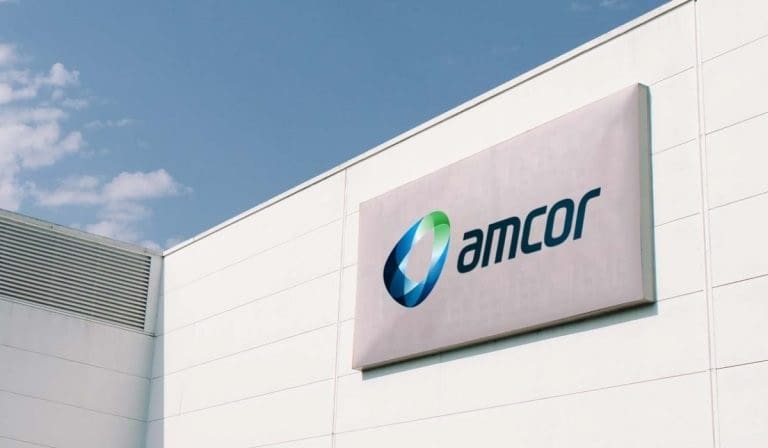
-Enzyme Breaks Down Waste Plastic in Days, or Even Hours
The plastics-eating enzyme can almost completely degrade untreated, postconsumer-PET from 51 different thermoformed products in a week, say researchers.
Why bury plastic in a landfill and wait years for it to degrade when it can break down in days — or even hours?
That’s what researchers at the University of Texas at Austin propose in their study of a plastics-eating enzyme. The paper was published on April 27 in the journal Nature
Their variant of an enzyme called PETase can degrade PET even at low temperatures, making the process even greener by reducing energy usage. By creating a machine learning algorithm, the team was able to engineer its mutated version of PETase, called FAST, which stands for functional, active, stable, and tolerant.
According to the paper, PET accounts for 12% of global solid waste. FAST-PETase has the potential to take a big bite out of that volume. The study found that the plastics-eating enzyme could:
- Almost completely degrade untreated, postconsumer-PET from 51 different thermoformed products in a week.
- Depolymerize all of a thermally pretreated water bottle at 50°C, or untreated amorphous portions of a water bottle.
Furthermore, the team demonstrated that PET could be resynthesized from monomers recovered after using FAST-PETase. In some cases, those monomers were generated within 24 hours.
“The possibilities are endless across industries to leverage this leading-edge recycling process,” said Hal Alper, professor in the McKetta Department of Chemical Engineering at UT Austin, in a press release from the university. “Beyond the obvious waste management industry, this also provides corporations from every sector the opportunity to take a lead in recycling their products. Through these more sustainable enzyme approaches, we can begin to envision a true circular plastics economy.” Waste-Plastic – Sorting-system
With less than 10% of plastic waste around the world being recycled, biological solutions that function at low temperatures offer a portable and less energy-intensive alternative either to burning plastic at high temperatures or employing conversion processes like glycolysis, pyrolysis, or methanolysis. FAST-PETase could be used for environmental remediation of plastics-polluted sites.
“When considering environmental cleanup applications, you need an enzyme that can work in the environment at ambient temperature,” Alper said. “This requirement is where our tech has a huge advantage in the future.”
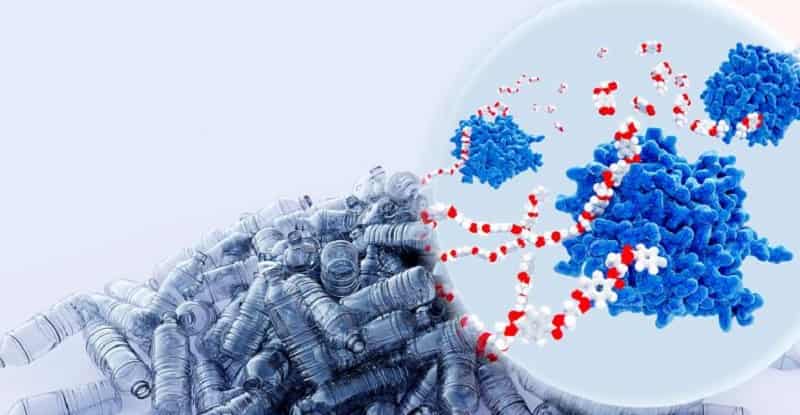
-Project partners present “virgin-grade” oil made from waste plastic
Waste company IVAR, chemical recycling company Quantafuel and Geminor have for several months been collaborating in the chemical recycling of waste plastic from the Stavanger region in Norway. The first oil developed from waste plastic in the project is now ready for use in new plastic products.
In the Stavanger region, plastics and metal packaging are sorted at IVAR’s modern sorting plant, where valuable resources are extracted from household waste. In a collaborative project with Quantafuel, waste plastic with the right properties has been sent to the company’s chemical recycling plant in Skive in Denmark, where Quantafuel is upgrading plastic waste to new raw materials. This raw material, or oil, can be used to produce new products that have high-quality requirements in both Norway and the EU, such as food packaging. Waste-Plastic – Sorting-system
So far in 2022, Quantafuel has received as much as 150 tonnes of plastic for chemical recycling from IVAR.
– We have been processing plastic from the IVAR plant for a few months now, and we find that the quality of the oil that is produced satisfies the requirements of our customer BASF. The oil holds a quality that can be used in products such as transport boxes for fish, food packaging, and thermo boxes for temperature-sensitive medicines, says Quantafuel’s Chief Operating Officer, Terje Eiken.
– This production is an important step toward more efficient material recycling. We look forward to taking greater responsibility in reaching the ambitious recycling goals of the EU, Eiken says.
Increases recycling rate
IVAR’s sorting plant saves the environment 33,000 tonnes of emissions per year through increased recycling of plastic, metal, and paper.
Project leader at IVAR, Rudolf Meissner, sees great opportunities in the collaboration with Quantafuel.
– We have for some time been searching for recycling solutions that provide an even higher recycling rate for our sorted plastic. Quantafuel is able to utilize plastics that cannot be recycled in other ways, says Meissner.
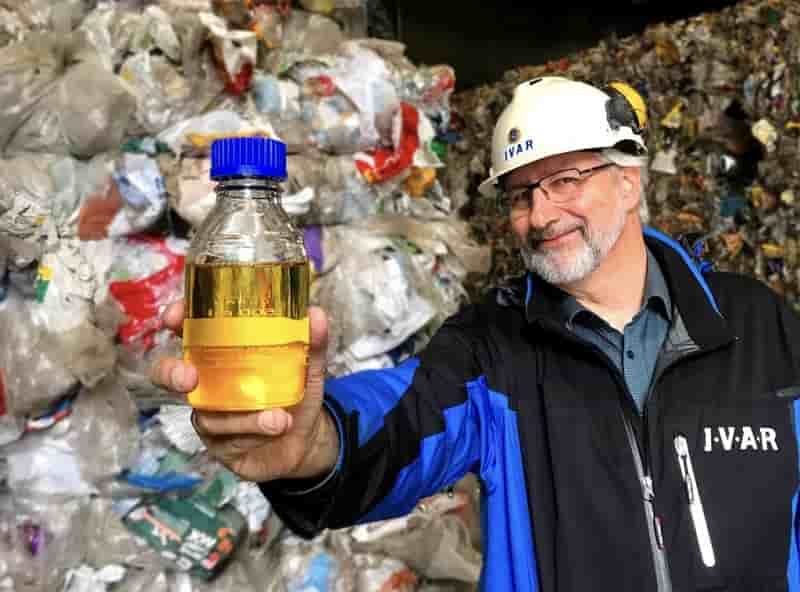
-Freepoint Eco-Systems, Van Dyk partner on sorting system for Ohio plant
Van Dyk will supply the front-end sorting system for the company’s advanced recycling facility.
Freepoint Eco-Systems LLC, Stamford, Connecticut, is partnering with Van Dyk Recycling Solutions, Norwalk, Connecticut, to build a front-end sorting system for the advanced recycling facility the company is building in Hebron, Ohio, roughly 30 miles from the state capital of Columbus in Licking County.
The facility will recycle 90,000 tons per year of end-of-life plastic. The project will employ approximately 200 people during the construction phase and 50 people when fully operational. Commercial operations are expected to begin in 2023.
Brian Schellati, director of business development for Van Dyk, says, “Joining our experience in system design with Freepoint Eco-Systems’ dedication to finding renewable avenues for plastics led to a project that we believe is going to be very successful. The facility will accept postsorted plastics from material recovery facilities. Those materials will pass through an advanced sortation system and then ultimately become pelletized.”
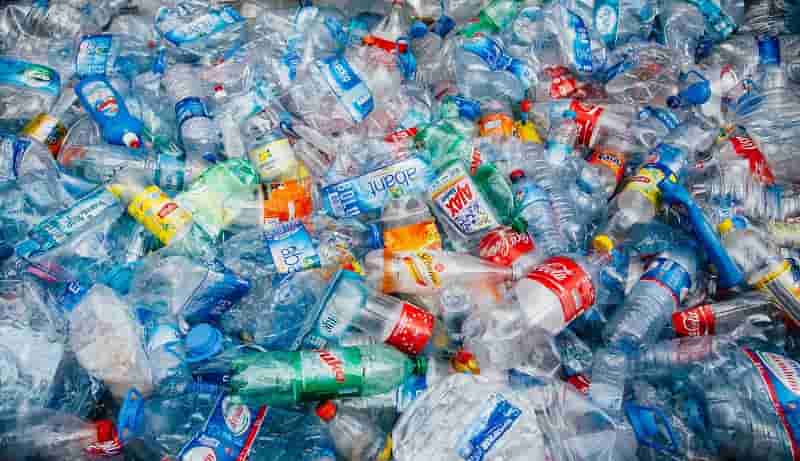
Waste-Plastic – Sorting-system
